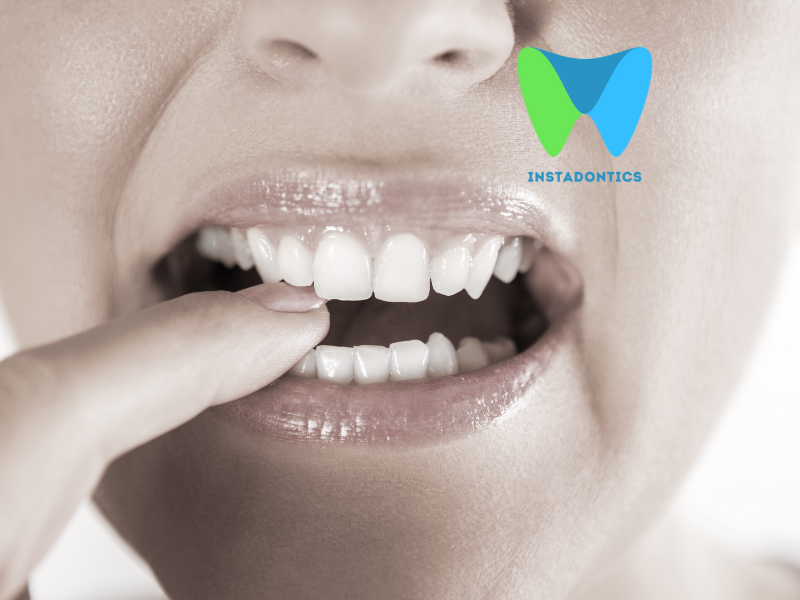Dental pain can be excruciating, often striking at the most inconvenient times. Whether it’s a throbbing toothache, sensitivity, or pain after a dental procedure, over-the-counter (OTC) medications can provide temporary relief until you can see a dentist. In this article, we’ll explore seven common OTC medications for dental pain, how they work, their contraindications, and tips for using them effectively.
Over-the-Counter Medications for Dental Pain
1. Ibuprofen (Advil, Motrin)
Ibuprofen is a widely used NSAID (nonsteroidal anti-inflammatory drug) that effectively reduces inflammation, swelling, and pain by inhibiting the production of prostaglandins, the chemicals responsible for these symptoms. It’s particularly helpful for throbbing toothaches, post-dental procedure pain, and inflammation-related discomfort. However, it should be avoided by individuals with stomach ulcers, kidney issues, or asthma, and it’s important to take it with food to minimize stomach upset. Always follow the recommended dosage and consult a healthcare provider if you have underlying health conditions or are taking other medications.
Best For:
- Throbbing toothaches caused by inflammation or infection.
- Pain after dental procedures like extractions or root canals.
Contraindications:
- Avoid if you have a history of stomach ulcers, gastrointestinal bleeding, or kidney disease.
- Not recommended for people with asthma, as it may trigger attacks.
- Consult a doctor if you’re on blood thinners or have heart conditions.
Tips:
- Take with food to avoid stomach upset.
- Follow dosage instructions carefully (typically 200-400 mg every 4-6 hours).
2. Acetaminophen (Tylenol)
How It Works:
Acetaminophen works by blocking pain signals in the brain and reducing fever. Unlike NSAIDs, it does not have anti-inflammatory properties.
Best For:
- Mild to moderate dental pain.
- Patients who cannot take NSAIDs due to stomach issues or allergies.
Contraindications:
- Avoid if you have liver disease or consume alcohol regularly.
- Do not exceed the recommended dose (typically 500-1000 mg every 4-6 hours, not exceeding 4000 mg/day).
Tips:
- Combine with ibuprofen for enhanced pain relief (under medical guidance).
3. Aspirin (Bayer, Bufferin)
Aspirin is an NSAID (nonsteroidal anti-inflammatory drug) that reduces pain and inflammation by blocking the production of prostaglandins, chemicals responsible for pain and swelling. It also has blood-thinning properties, which can help prevent blood clots but may increase the risk of bleeding. While effective for mild dental pain, aspirin should not be placed directly on the gums or teeth, as it can cause chemical burns. Avoid using aspirin if you have a bleeding disorder, stomach ulcers, or are scheduled for dental surgery. Always follow dosage instructions and consult a doctor if you have concerns.
Best For:
- Mild dental pain and inflammation.
Contraindications:
- Avoid if you have a bleeding disorder, stomach ulcers, or are scheduled for dental surgery.
- Not recommended for children under 16 due to the risk of Reye’s syndrome.
Tips:
- Do not place aspirin directly on the tooth or gums, as this can cause chemical burns.
4. Naproxen Sodium (Aleve)
Naproxen is a long-lasting NSAID (nonsteroidal anti-inflammatory drug) that effectively reduces pain and inflammation by blocking the production of prostaglandins, chemicals in the body that trigger pain and swelling. It’s particularly useful for persistent dental pain, as its effects can last up to 12 hours, making it ideal for nighttime relief. However, it’s not suitable for everyone—avoid naproxen if you have stomach ulcers, kidney issues, or heart conditions. Always follow the recommended dosage and consult a healthcare provider if you’re unsure about using it.
Best For:
- Persistent dental pain that requires longer-lasting relief.
Contraindications:
- Avoid if you have a history of heart disease, high blood pressure, or kidney issues.
- Not recommended for people with asthma or stomach ulcers.
Tips:
- Effects can last up to 12 hours, making it convenient for nighttime use.
- Avoid taking with other NSAIDs to prevent side effects.
5. Benzocaine (Orajel, Anbesol)
Benzocaine is a topical anesthetic commonly used to relieve dental pain by temporarily numbing the affected area. It works by blocking nerve signals in the gums and teeth, providing quick relief from toothaches, canker sores, and gum irritation. Available in gels, creams, and sprays, it’s easy to apply directly to the painful spot. However, it should be used sparingly to avoid irritation or allergic reactions. Avoid using benzocaine in children under 2 years old due to the risk of methemoglobinemia. Always follow the instructions on the packaging and consult a dentist if pain persists.
Best For:
- Localized pain relief for toothaches, canker sores, or gum irritation.
Contraindications:
- Avoid if you have a history of methemoglobinemia (a blood disorder).
- Do not use in children under 2 years old unless directed by a doctor.
Tips:
- Apply directly to the affected area using a cotton swab or clean finger.
- Use sparingly and avoid overuse, as it can cause irritation.
6. Clove Oil
How It Works:
Clove oil has been used for centuries as a natural remedy for dental pain, thanks to its active ingredient, eugenol. This powerful compound gives clove oil its anesthetic, anti-inflammatory, and antimicrobial properties, making it a popular choice for temporary relief from toothaches, gum pain, and oral infections. Below, we’ll dive deeper into how clove oil works, its benefits, potential risks, and how to use it safely.
Best For:
- Temporary relief for toothaches and gum pain.
Contraindications:
- Avoid if you are allergic to eugenol or have sensitive skin.
- Do not use undiluted, as it can cause burns or irritation.
Tips:
- Dilute with a carrier oil (like coconut oil) before applying to avoid irritation.
- Use a cotton ball to apply directly to the affected tooth or gums.
7. Hydrogen Peroxide Rinse (Diluted)
A diluted hydrogen peroxide rinse is a simple yet effective way to reduce bacteria and inflammation in the mouth, offering relief for minor dental pain. By mixing equal parts of 3% hydrogen peroxide and water, you create a solution that can help cleanse the mouth, soothe irritated gums, and promote healing. Swish the mixture for 30 seconds and spit it out—do not swallow. However, avoid using this rinse if you have open sores or wounds in your mouth, as it may delay healing. Always use it sparingly and consult your dentist if pain persists or worsens.
Best For:
- Pain caused by gum infections or minor mouth sores.
Contraindications:
- Avoid if you have open wounds or sores in the mouth, as it may delay healing.
- Do not swallow, as it can cause stomach irritation.
Tips:
- Mix equal parts hydrogen peroxide (3%) and water.
- Swish for 30 seconds and spit out—do not swallow.
When to See a Dentist
While OTC medications can provide temporary relief, they are not a substitute for professional dental care. Seek immediate attention if you experience:
- Severe or worsening pain.
- Swelling in the face or jaw.
- Fever or signs of infection.
- Difficulty breathing or swallowing.
Related: Best Over-the-Counter Pain Relievers for Toothaches
Dental pain can be debilitating, but these seven OTC medications can help manage discomfort until you can see a dentist. Always follow dosage instructions, check for contraindications, and consult a healthcare professional if you’re unsure which medication is right for you. Remember, addressing the root cause of dental pain is essential for long-term relief and oral health.



